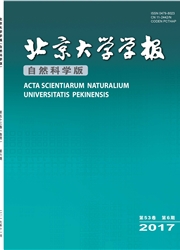

 中文摘要:
中文摘要:
过去20年来,区域发展理论基于西方国家的经验,重新高度评价了产业集群促进技术创新的功能。中国学者及时跟踪了国际研究,然而由于尚未密切结合国情特点,未能为决策部门提供适合的理论背景。作者从我国外向型制造业集群的发展实际出发,以新的视角分析了我国集群发展和研究方向。文章指出,我国集群形成之内在机制和国际背景都不同于发达国家的创新性集群。我国的集群正处在"全球-地方"张力的作用下,以多种方式嵌入跨国公司外包所形成的全球生产网络中。我国集群降低成本的功能十分有利于跨国采购商和合同制造商等企业,但它对建立国家和区域竞争优势的作用却是有限的。因此,我国集群发展的任务是孵育创新性的集群,而不是继续打造单纯追逐低成本的集群。关于我国集群研究的方向,本文提出需要继续从产业联系入手,密切结合国情,深入分析我国集群的实际演进和实际作用,从而探讨集群升级的政策措施。
 英文摘要:
英文摘要:
In the last two decades, regional development theories based on the Western experience, highly addressed the innovation function of industrial clusters, with Chinese scholars following. However, because it not yet fit the nation's characteristics, it could not provide proper theoretical background for Chinese policy makers. The paper claims that Chinese clusters formed in global-local tension. Paying more attention to concentrated dispersion caused by offshore outsourcing could provide some insights for cluster formation of China. The clusters of China functioned very well for multinational buyers and contract manufactures, but their roles for build competitive advantage of the country and their regions were limited. Therefore, the key task facing China should be to foster innovative clusters instead of building more "low road" ones. From these points of view, Chinese scholars should study industrial linkage continually, analyze the actual evolutions and function in the national institution setting, so that policy-makers could learn the circumstances in which local upgrading strategies could be expected to succeed.
 同期刊论文项目
同期刊论文项目
 同项目期刊论文
同项目期刊论文
 Geographical concentration of manufacturing industries in China: The importance of spatial and indus
Geographical concentration of manufacturing industries in China: The importance of spatial and indus Globalization, institutional change, and industrial location: Economic transition and industrial con
Globalization, institutional change, and industrial location: Economic transition and industrial con 期刊信息
期刊信息
